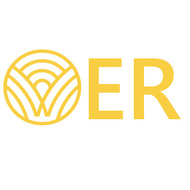Obiectivele de Dezvoltare Durabilă ale ONU - Lecții de Competențe Globale
(View Complete Item Description)Developed by the World Affairs Council of Seattle, this teaching and learning module provides a series of lessons that engage students in exploring the United Nations Sustainable Development Goals. With 17 goals in total, this ambitious framework targets local and global issues ranging from ensuring quality education for all to mitigating climate change. This set of lessons has student facing materials translated into Romanian. __________Elaborat de Consiliul de Afaceri Mondiale din Seattle, acest modul de predare și învățare oferă o serie de lecții care implică elevii în explorarea Obiectivelor de Dezvoltare Durabilă ale Organizației Națiunilor Unite. Cu un total de 17 obiective, acest cadru ambițios vizează probleme locale și globale, de la asigurarea unei educații de calitate pentru toți la atenuarea schimbărilor climatice.
Material Type: Lesson, Lesson Plan, Unit of Study



















